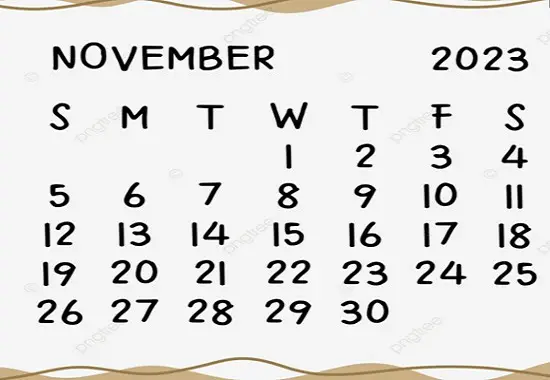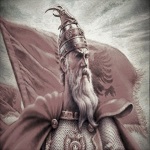 1443 – Gjergj Kastriot Skënderbeu raised the national flag over the Kruja fortress. After liberating Kruja on November 28, 1443, he raised the Kastriot flag, a red flag with a double-headed black eagle. He gave a fiery speech before the Crutans. Without wasting time, he entered into talks with the Arber lords and with their help he liberated a number of other castles. The possessions of many Arber nobles were located in the liberated areas. The liberation of the country in 1443 was a historic victory, but Skenderbeu realized that in order to protect the liberated territories, political fragmentation had to be overcome and united. Therefore, he gathered an assembly of nobles in Lezha
1443 – Gjergj Kastriot Skënderbeu raised the national flag over the Kruja fortress. After liberating Kruja on November 28, 1443, he raised the Kastriot flag, a red flag with a double-headed black eagle. He gave a fiery speech before the Crutans. Without wasting time, he entered into talks with the Arber lords and with their help he liberated a number of other castles. The possessions of many Arber nobles were located in the liberated areas. The liberation of the country in 1443 was a historic victory, but Skenderbeu realized that in order to protect the liberated territories, political fragmentation had to be overcome and united. Therefore, he gathered an assembly of nobles in Lezha
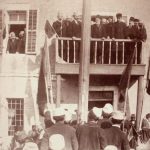 1912 – Albania declares its independence from the Ottoman Empire. This act was performed in Vlora by the founder of the first Albanian state, Ismail Qemali. The declaration of Independence was attended by 83 delegates, from all Albanian territories. Immediately after the declaration of Independence, the Assembly of Vlora formed the first Albanian government led by Ismail Qemali. The Declaration of Independence of Albania, by the Ottoman Empire, was made at a key moment in our history after the neighboring countries of Serbia, Montenegro, Bulgaria, and Greece, had undertaken the expansion for the occupation of Albanian lands.
1912 – Albania declares its independence from the Ottoman Empire. This act was performed in Vlora by the founder of the first Albanian state, Ismail Qemali. The declaration of Independence was attended by 83 delegates, from all Albanian territories. Immediately after the declaration of Independence, the Assembly of Vlora formed the first Albanian government led by Ismail Qemali. The Declaration of Independence of Albania, by the Ottoman Empire, was made at a key moment in our history after the neighboring countries of Serbia, Montenegro, Bulgaria, and Greece, had undertaken the expansion for the occupation of Albanian lands.
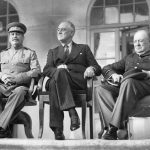 1943 – The famous Tehran Conference is held in Iran. It was led by US President Franklin D. Roosevelt, British Prime Minister Winston Churchill and Soviet leader Joseph Stalin to discuss war strategy. It was held at the Soviet Embassy in Tehran, Iran. It was the first of World War II conferences of Allied leaders (Soviet Union, United States, and United Kingdom). It followed the Cairo Conference, which took place on November 22, 1943, and preceded the 1945 Yalta and Potsdam conferences.
1943 – The famous Tehran Conference is held in Iran. It was led by US President Franklin D. Roosevelt, British Prime Minister Winston Churchill and Soviet leader Joseph Stalin to discuss war strategy. It was held at the Soviet Embassy in Tehran, Iran. It was the first of World War II conferences of Allied leaders (Soviet Union, United States, and United Kingdom). It followed the Cairo Conference, which took place on November 22, 1943, and preceded the 1945 Yalta and Potsdam conferences.
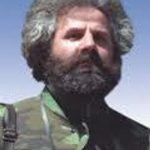 1955 – Adem Jashari is born in Prekaz, Drenica. Jashari was one of the founders of the Kosovo Liberation Army, as well as its commander-in-chief. Together with his brother Hamza, he took part in the constant attacks against the Serbian police and military forces. It was these forces, on March 5, 1998, that surrounded and attacked his house, which was one of the most important bases of the KLA. During this siege, he fought heroically against them by falling martyr, along with 55 members of his family. Today he holds the title “Hero of Kosovo”.
1955 – Adem Jashari is born in Prekaz, Drenica. Jashari was one of the founders of the Kosovo Liberation Army, as well as its commander-in-chief. Together with his brother Hamza, he took part in the constant attacks against the Serbian police and military forces. It was these forces, on March 5, 1998, that surrounded and attacked his house, which was one of the most important bases of the KLA. During this siege, he fought heroically against them by falling martyr, along with 55 members of his family. Today he holds the title “Hero of Kosovo”.
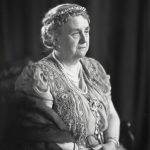 1962 – Extinguished at the age of 82, Wilhelmina of the Netherlands. Wilhelmina, was Queen of the Netherlands from 1890 until her abdication in 1948. She reigned for almost 58 years, longer than any other Dutch monarch. Her reign saw the First and Second World Wars, the Dutch Economic Crisis of 1933, and the fall of the Netherlands as a major colonial power. Increasingly surrounded by poor health after the war, Wilhelmina abdicated in September 1948 in favor of Juliana. She retired to Het Loo Palace, where she died.
1962 – Extinguished at the age of 82, Wilhelmina of the Netherlands. Wilhelmina, was Queen of the Netherlands from 1890 until her abdication in 1948. She reigned for almost 58 years, longer than any other Dutch monarch. Her reign saw the First and Second World Wars, the Dutch Economic Crisis of 1933, and the fall of the Netherlands as a major colonial power. Increasingly surrounded by poor health after the war, Wilhelmina abdicated in September 1948 in favor of Juliana. She retired to Het Loo Palace, where she died.
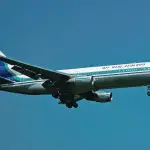 1979 – An Air New Zealand Flight 901 civilian plane crashes on Mount Erebus in Antarctica, killing all 257 passengers on board. The initial investigation concluded that the accident was caused by the pilot’s fault, but public outrage led to the establishment of a Royal Commission of Inquiry into the crash. Most of the passengers were locals, followed by Japanese, and Americans. This plane crash would be one of the worst in the history of New Zealand air travel.
1979 – An Air New Zealand Flight 901 civilian plane crashes on Mount Erebus in Antarctica, killing all 257 passengers on board. The initial investigation concluded that the accident was caused by the pilot’s fault, but public outrage led to the establishment of a Royal Commission of Inquiry into the crash. Most of the passengers were locals, followed by Japanese, and Americans. This plane crash would be one of the worst in the history of New Zealand air travel.
 1990 – British Prime Minister Margaret Thatcher resigns as leader of the Conservative Party and, consequently, as Prime Minister. She was succeeded, in both positions by John Major. She was the British Prime Minister with the longest service in the post, as well as the first woman to hold that post. A Soviet journalist called her the “Iron Lady”, a nickname associated with her uncompromising politics and leadership style. As Prime Minister, she implemented policies known as Thatcherism.
1990 – British Prime Minister Margaret Thatcher resigns as leader of the Conservative Party and, consequently, as Prime Minister. She was succeeded, in both positions by John Major. She was the British Prime Minister with the longest service in the post, as well as the first woman to hold that post. A Soviet journalist called her the “Iron Lady”, a nickname associated with her uncompromising politics and leadership style. As Prime Minister, she implemented policies known as Thatcherism.




